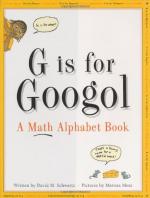|
This section contains 310 words (approx. 2 pages at 300 words per page) |
Googol is the name for the number 10 to the power 100 (10100). In other terminology the googol is stated as "ten billion, billion, billion, billion, billion, billion, billion, billion, billion, billion, billion". In 1938 mathematician Dr. Edward Kasner (1878-1955) supposedly asked his nine-year-old nephew, Milton Sirotta, to think of a name for a very, very big number; namely, one followed by one hundred zeros. "Googol" was the name young Milton supplied to his uncle. Googol is an incredibly large number, but at the time of its labeling Kasner decided to name an even larger, but still finite, number. In fact, the largest number so far named was called by Kasner the "googolplex", the name for 10 to the power of googol (or,
As a comparison for the extreme size of the googol, it is estimated that there are some one hundred billion (1011, or one followed by 11 zeroes) galaxies in the universe, with each averaging around one hundred billion stars. There are perhaps, then, about ten billion trillion (1022, or one followed by 22 zeroes) stars in the entire universe. This number is much smaller than the googol. As another example, United States astronomer Carl Sagan (1934-1996) once said that if we randomly placed ourselves on another planet in the universe, the probability that we could locate the planet earth would be less than one in a billion trillion trillion (1033, or one followed by 33 zeroes). This number still does not come close to the value of a googol. After naming the word googol, Dr. Kasner regretfully admitted that mathematicians seldom use the colorful words of googol and googolplex.
|
This section contains 310 words (approx. 2 pages at 300 words per page) |


